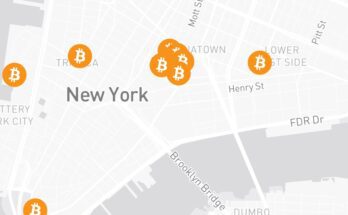LG: So what I’m hearing you say, I think, is that you’re really thinking about this long term. That even if some of these investments and the companies themselves are maybe weakened in the short-term because of the pandemic, you’re willing to make that investment toward sustainability for that timeline in the future when we actually are post-Covid-19. And if I’m hearing that correctly, when you look at that, what is that timeline for you? Are you looking five to seven years from now? When do you think that we reemerge from this?
AG: Yeah, well, first of all, we don’t know and no one knows. My guess is that the maturation and strength of the global biotech community has advanced so much that there’s a real chance there—that we will be pleasantly surprised with the arrival of efficacious and safe vaccines sooner than the experts have told us to expect. I’m not an expert on that, but we listen to those who have been following it and it’s very impressive what these groups have done. Of course, it will take as much time as it’ll take, because you have to do the large safety studies and they take some time. But in any case, whenever we emerge, I think that these trends are producing a new world. And we think that it’s the biggest business and investing opportunity in history.
LG: You’ve been clamoring for the public to pay attention to climate change for decades now. But as your own report highlights, people are more concerned about the coronavirus than they are about climate change. The younger groups care a little bit more about climate change, but everyone else, right now the attention has totally shifted. How do you propose that people essentially care about these dual crises right now? And it’s not just a dual crisis, of course—we’re experiencing a new Civil Rights Movement. We’ve talked about inequality. I guess I wonder if climate change is destined to always take a backseat even as all of these events are intertwined. How do you propose to keep climate change in the center of attention?
AG: Well, first of all, I would be surprised if the Covid-19 pandemic was not the principal concern occupying most people’s thoughts right now, because of the obvious consequences and the fact that in some countries—including the US—the case numbers are still rising. We had a botched reopening, and the predictable consequences are unfolding now.
But I don’t see it as a competition for attention and awareness. I see it as a natural relationship, and I do think that there’s some real evidence of a broader general awakening. I don’t want to sound Pollyannaish on this point, but if you think back a few years, the awakening to the incredible injustice that was suffered for so long by the LGBTQ community led to a startling change in the demand for marriage equality and for an end to discrimination in employment, recently codified in a Supreme Court decision. And the gains of the LGBTQ community are being consolidated. They’re not going away.
Similarly, the gender equity demands of the last few years are being consolidated. One magazine referred to our present time as the “Great Awokening,” and I won’t necessarily endorse that glib phrase, but I think that it does carry some meaning. No kidding.
I think that the general lesson is that when scientists are setting their hair on fire, so to speak, to try to warn us of something, it’s best to pay attention. When both the pandemic and the climate crisis reveal for all to see the incredible injustices suffered by communities of color. I mean, how in God’s name could the majority in our country—and I include myself in this indictment—how could we have tolerated for so long a situation where the earnings gap between Black workers and white workers is the same now as it was 50 years ago? How could we tolerate the fact that the net worth of the so-called typical Black family, compared to the net worth of a typical white family, it takes 11.5 Black families to make up the net worth of one white family? How could we have looked the other way and not been more focused on changing that?


